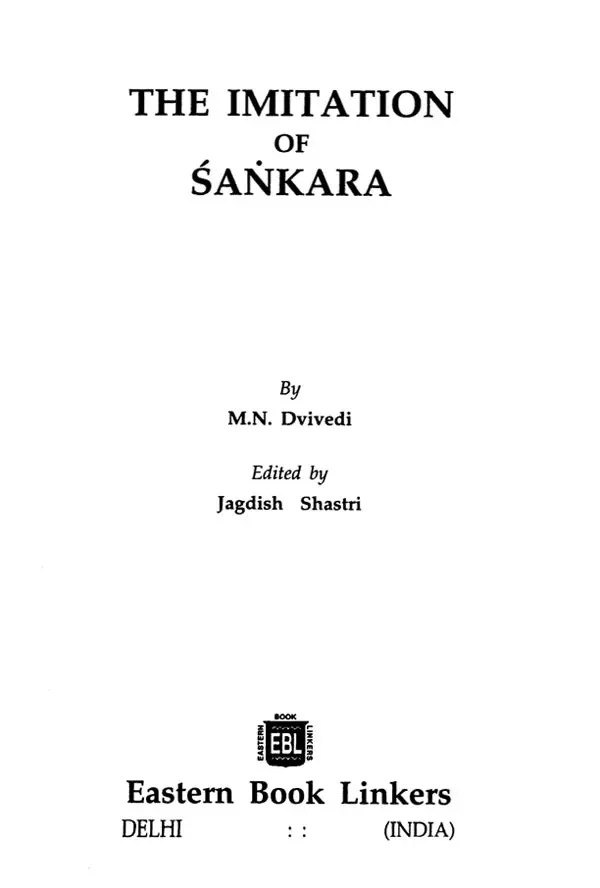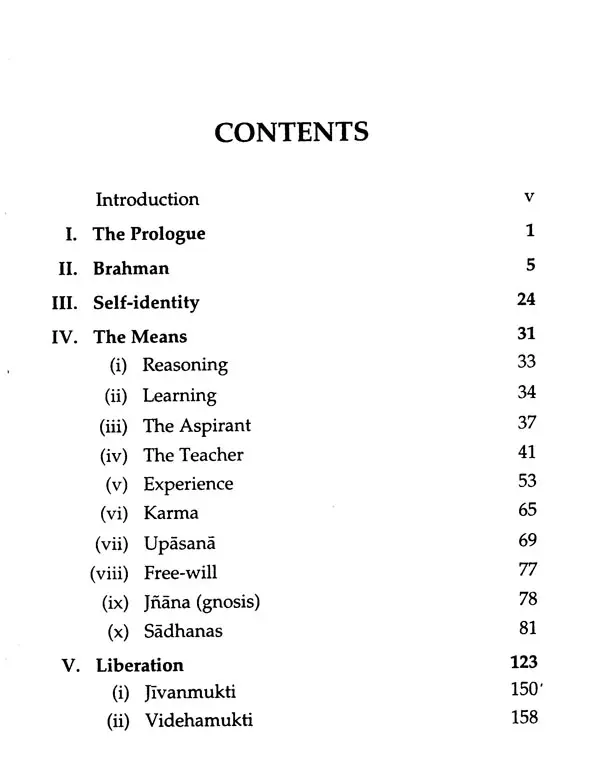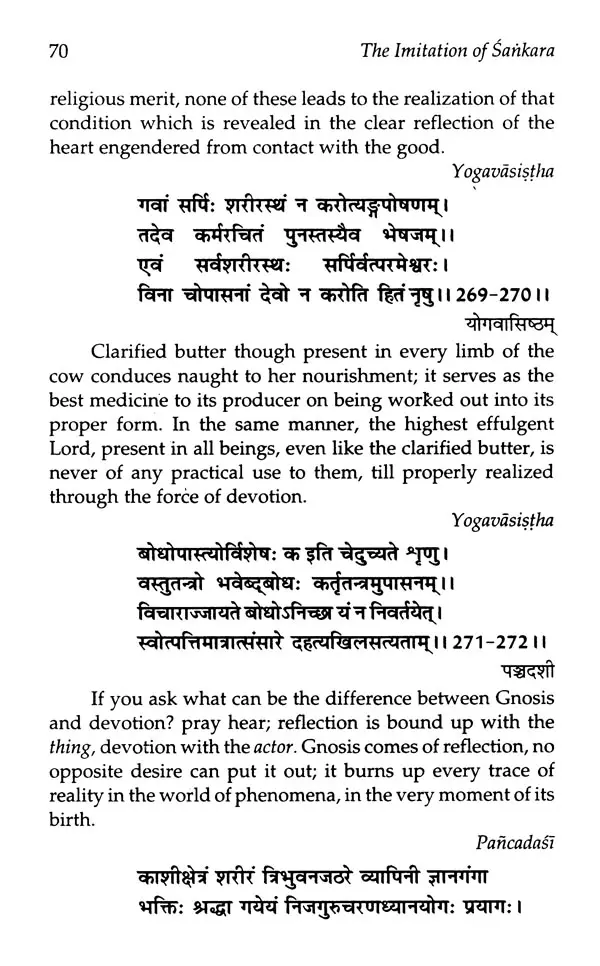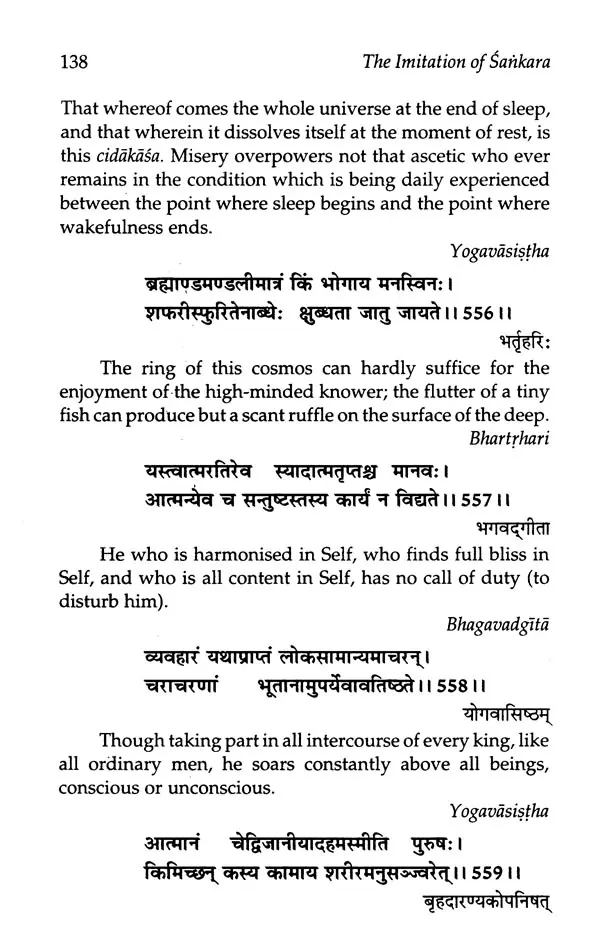
The Imitation of Sankara
Book Specification
| Item Code: | UAJ059 |
| Author: | M.N. Dwivedi |
| Publisher: | Eastern Book Linkers |
| Language: | Sanskrit Text with English Translation |
| Edition: | 2005 |
| ISBN: | 817854069X |
| Pages: | 218 |
| Cover: | HARDCOVER |
| Other Details | 9.00 X 6.00 inch |
| Weight | 370 gm |
Book Description
With the .Enlightenment of the nineteenth century about us, we are, almost unconsciously, led into a comparison of those times with these. And the situation is largely suggestive, the points of resemblance strongly inviting, and the mind of the Master worth careful study and Imitation. There is, indeed, sore need of The Imitation of Sankara all the world over. Let the reader have the picture and its eloquent suggestion before his mind, let him imagine the Master pointing the way to Reform and Peace, and let him seriously construe, in some calm moment, these faltering accents of mine, into the inaudible expression of the Master's mighty melody. The need for an 'Imitation of Sankara' is perhaps greatest in the present day.
It has been the ambition of my heart, from the first- hand experience I have had of the truth of these remarks, to present the main Idea of this sublime universal 'Philosophy of the Absolute' in as simple and popular a form as the nature of the subject would permit. The deservedly popular book of Thomas-a-Kermis, 'The Imitation of Christ,' fascinated my attention, and Bowdon's 'Imitation of Buddha' suggested the plan of this work. There was the same mighty spirit breathing in the child of Galilee, the prince of Kapilavastu, and this Brahman of Southern India. He has as much right to an 'Imitation' as the other seers of antiquity; the need for an 'Imitation of Sankara' is perhaps greatest in the present day.
I am not unconscious of the defects of my performance. It laces the simplicity of Kempis. The nature of the subject is my only excuse; and if the book gives plain, serious, earnest, matter for thought, at first sight, I should consider it no small satisfaction. Then again the detached nature of the information is another difficulty in the way. Loss of context might occasionally tend to obscure the sense of a passage. I have, however, tried to remedy this defect by stringing the pieces together in a kind of fictitious context from end to end. Many of the passages could have been given in much better language, for; several of them have been translated before by abler hands: but I have my reasons for attempting fresh translation. 1 Where commentaries have been available.
I have carefully consulted them, and, by giving a free rendering of every text, I have done my best to combine the spirit of the context and the strength of the commentary in my translation. Among commentaries those of Sankara have always had the preference. In one more respect does this work differ from that of Kempis or rather that of Bowdon? The collection here is not entirely from the works of Sankara, but from all works bearing on the Philosophy taught by Sankara and his followers. I have divided the whole collection into chapters and sections with a view to exhaust the main topics of the Absolute Philosophy. Texts from the Upanisads and other works are often referred to in Vedanta-writings. That almost every important reference of this kind may easily be traced to its place in this collection, where it should be found in its entirety with translation, a careful Alphabetical Index has been appended at the end. Book's Contents and Sample Pages












